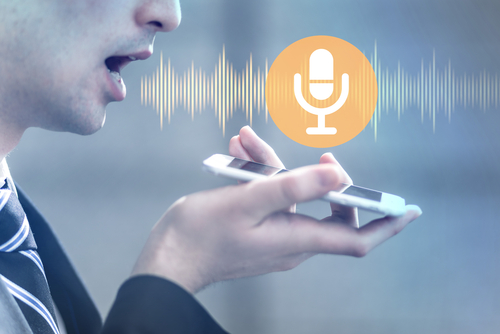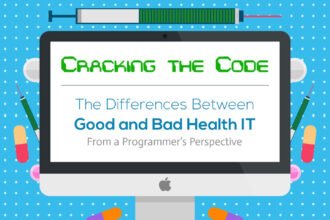Healthcare is one of the sectors that has been slowest to adopt the latest innovations. Voice recognition technology is not an exception. Understandably, healthcare providers need to be more careful than most. Patients must always come first. Budgets are tight, and healthcare has heavy regulatory burdens.
Despite this, mobile technologies and many other advances are making their way to the patient experience. Similarly, voice recognition and recording software has many uses in the medical system.
Benefits of voice technology in healthcare
Since 2013, in the U.S., Medicare has penalized two-thirds of hospitals due to patient readmissions.
However, voice recognition and patient transcriptions can reduce these kinds of penalties for hospitals. The recordings of patient visits can help to predict whether a patient is going to be readmitted. This makes it easier to put patient plans in place and should offset or reduce the risk of a penalty from Medicare.
That is only one example of how medical providers can use voice data from patient meetings.
Early diagnoses
With voice-enabled medical apps, patients could talk about any health problems. A smart database, running in the background, could then issue information about what those symptoms mean. Besides, it can prompt patients to seek for medical help and set up a doctors appointment for them.
For patients who aren’t as computer or phone savvy, this would be an improved service. Medical voice recognition software would also reduce the initial impact on doctors practices. As phone calls with doctors in the U.S. aren’t billable, thereby using digital assistants will give them more time to do billable work.
In the UK, the Amazon Alexa device and app have been connected to the NHS website. People can now use voice search to assess trusted health information. It might be very helpful for elderly and blind patients who cannot easily search for advice. Besides, voice-based applications answering basic health questions ease pressure on the healthcare system. Fewer people will call doctors about minor concerns. As a result, it will save the health service time and money.
Downstream billable clarity
Collecting the evidence for downstream billable providers is a challenge for medical practitioners.
But, with cloud-based voice-enabled medical admin systems, recording billable time becomes more precise. Voice-activated software helps medical professionals record their daily activities. It captures billable time as they work, which requires less effort then checking against records in the relevant EHRs. This way, healthcare providers are more accurately billing for their time.
Improved clinician experience
Sam Bagchi, MD, CMIO at Christus Health in Irving, Texas, shared his insights about voice recognition software in healthcare:
“With the rapid development of voice recognition and semantic understanding/AI, we are approaching a more joyful clinician experience in some ways.” Dr. Bagchi went onto say that, “Ambient listening devices for clinical encounters will transform the modern practice of medicine.”
In practice, this means that smart medical devices and apps will go beyond just listening. For instance, acting as a clinical documentation assistant, voice recognition software will greatly improve convenience and doctor-patient relationships.
Voice-controlled technology has the potential to assist doctors in a more meaningful way. Paired with AI, it may become a powerful decision-aid tool in healthcare. This will give doctors the support to better diagnose patients. Beyond that, it holds great promise for reducing workloads, stress and mental fatigue. So, it enables doctors to treat patients more effectively.
Final thoughts
To sum up, voice-enabled technology clearly has a place in the modern medical environment. Doctors need more support. Medical practices need more accurate billing data and transcriptions. Patients need an improved experience and more accurate early diagnoses and self-diagnosis capabilities. With voice recognition software these enhancements are possible.







